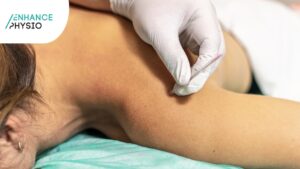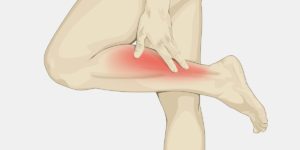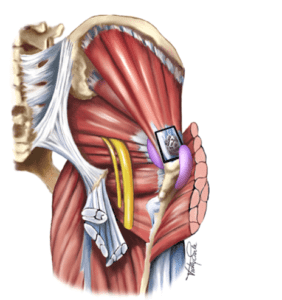Are you struggling with pain and weakness in your biceps? Biceps tendinopathy can be a debilitating condition that affects your ability to perform everyday tasks. But there is hope – physiotherapy treatment can help alleviate your symptoms and restore function to your arm.
Biceps tendinopathy is a condition that occurs when the tendons in the biceps become irritated or inflamed. It can cause pain, weakness, and limited range of motion in the affected arm.
While various treatment options are available, physiotherapy has shown promising results in relieving symptoms and improving function.
What is biceps tendinopathy?
The biceps brachii muscle, commonly known as the biceps, sits between the shoulder and elbow. It has two parts: the long head and the short head. These come together to form the main muscle bulk, the “Popeye” part of your upper arm. The biceps brachii muscle runs from the top and front of the shoulder all the way down to the upper forearm. The biceps tendon is the part that attaches the muscle to the bone both at the shoulder and the elbow.
The biceps muscle functions to bend the elbow and turn the hand to face palm-up. The term “tendinopathy” is used to describe injury and pain of a tendon. Biceps tendinopathy is a common injury that occurs when the tendon connecting the biceps muscle to the shoulder becomes inflamed or damaged.
This can happen due to repetitive overuse, ageing, or sudden trauma. Biceps tendinopathy tends to affect the long head of the biceps more commonly. The tendon itself and the tendon sheath can also be the source of pain.
It is essential to seek treatment for biceps tendinopathy as early as possible to prevent further damage and improve your quality of life.

Common causes of biceps tendinopathy
This condition occurs most commonly due to repeated use of the biceps over a long period. People with this condition often present in the later stages of tendon damage when they begin to experience pain.
This means that biceps tendinopathy is a slow-developing condition without any symptoms until it reaches the point that the tissues become injured and painful. This is the body’s way of self-defence; it tells you that it doesn’t like the activity you are doing.
While specific tasks such as throwing sports, tennis or golf can increase the risk of developing a biceps tendinopathy, often it is caused by usual daily activities throughout an adult’s life.
With ageing comes a decrease in the collagen and elastin components of tendons. This contributes to a reduced ability to sustain a high load, which can cause degeneration or inflammation over a more extended time.
Common symptoms of biceps tendinopathy
Biceps tendinopathy is painful, often aching at night and increasing in intensity when performing overhead tasks such as reaching and lifting. The pain is usually at the front of the shoulder and can radiate downwards along the front of the arm.
People with this condition often have developed adaptations to their usual movement patterns to avoid aggravating this pain. This can lead to other issues, such as strained or overworked muscles.
An example of this is hitching up the shoulder to the ear when using the affected side, as this will help to offload the affected muscle, allowing the biceps to be under less stress.
Unfortunately, eventually, this will increase the stress on the upper neck and shoulder muscles, leading to secondary aches and pains.
Physiotherapy for biceps tendinopathy
Physiotherapy treatment is a non-invasive and effective approach to managing biceps tendinopathy. By addressing the underlying causes of the condition and focusing on strengthening and stretching exercises, physiotherapists can help you regain strength, reduce pain, and improve your overall function.
Enhance Physiotherapy’s staff are experts in tendon pain and rehabilitation and are up to date with the latest evidence-based treatment techniques for tendon pain! Your physiotherapist will assess and diagnose this condition, which will, in turn, allow for a comprehensive management plan to be put in place.
If you have developed secondary complications with changes to your normal movement patterns, your physiotherapist can assist you in addressing these and training your body to avoid causing further damage. If additional imaging or onward referral is needed, your physiotherapist can help guide you through this process.

Final thoughts on physiotherapy treatment for biceps tendinopathy
If you’re struggling with biceps tendinopathy and want to regain strength and mobility in your arm, physiotherapy treatment may be the ideal solution.
Physiotherapy is an essential component of treatment for biceps tendinopathy, as it focuses on providing the patient with the tools to manage their symptoms and avoid further damage.
By understanding the role of physiotherapy in managing this condition, you can take the first step towards a pain-free and functional arm.





